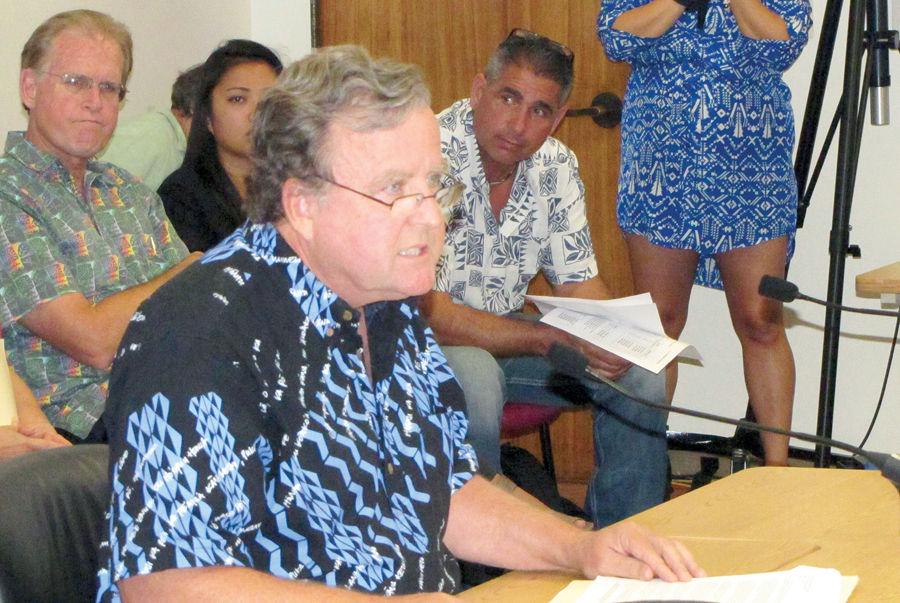HONOLULU — A tug-of-war over control of the agriculture industry’s use of pesticides and genetically modified crops is playing out in the Hawaii Legislature as lawmakers consider bills that would limit counties’ regulatory abilities and create pesticide buffer zones around
HONOLULU — A tug-of-war over control of the agriculture industry’s use of pesticides and genetically modified crops is playing out in the Hawaii Legislature as lawmakers consider bills that would limit counties’ regulatory abilities and create pesticide buffer zones around schools.
Bills pushed by advocates on opposite sides of the issue advanced out of two committees Thursday after hours of emotional testimony that prompted two different committee chairmen to threaten to call the Sergeant at Arms when testifiers wouldn’t settle down.
One proposal, HB 849, would prevent counties from enacting their own regulations on the farming industry. The bill was introduced after several Hawaii counties either banned or restricted the use of pesticides and genetically modified organisms because residents feared they were being exposed to chemicals that compromised their health.
But supporters of the bill argue that farmers are facing challenges to their long-term sustainability and their right to determine how to farm.
“I fully understand the concerns of individuals, but the courts have decided that this particular issue — those bills that were passed on Kauai and the Big Island — that it is the state’s responsibility to address these issues,” said Rep. Richard Onishi, D-Hilo, who co-introduced the bill.
For example, Kauai County enacted a law requiring companies to disclose the use of pesticides and cultivation of genetically modified crops, but a federal court judge ruled the law invalid in August, saying state laws pre-empt the county laws. Two separate appeals have been filed in the 9th U.S. Circuit Court of Appeals in San Francisco.
“Neither the state nor the federal government is truly aware of what happens on the ground within each county, and to strip away the county’s authority to protect its own citizens is in my opinion unconscionable,” said Kauai County Councilman Gary Hooser, who opposed the measure.
The House Agriculture Committee passed the bill on an 11-2 vote Thursday.
Rep. Derek Kawakami, who represents parts of Kauai, voted no, along with Rep. Lauren Matsumoto, R-Schofield. Rep. James Kunane Tokioka, Rep. Sam Kong and Rep. Takashi Ohno voted yes with reservations.
Kawakami called the bill unnecessary and premature.
“I believe that the little island of Kauai is leading the way as far as going out and attempting to cut through the fog of the issue,” Kawakami said, referring to a fact-finding committee with stakeholders on both sides that was assembled to research the issue.
Another bill to create pesticide buffer zones around schools, hospitals and child care facilities passed out of the House Committee on Energy and Environmental Protection on Thursday. The exact size of the buffer zones is to be determined, but one recommendation under consideration is three-quarters of a mile, said Rep. Chris Lee, chairman of that committee.
“Given the high profile votes and legislation passed by the counties, something needs to be done,” Lee said. “This is going to be a first step to protect some of our most sensitive areas — our schools, our children — from the unintended impacts of pesticide use.”


